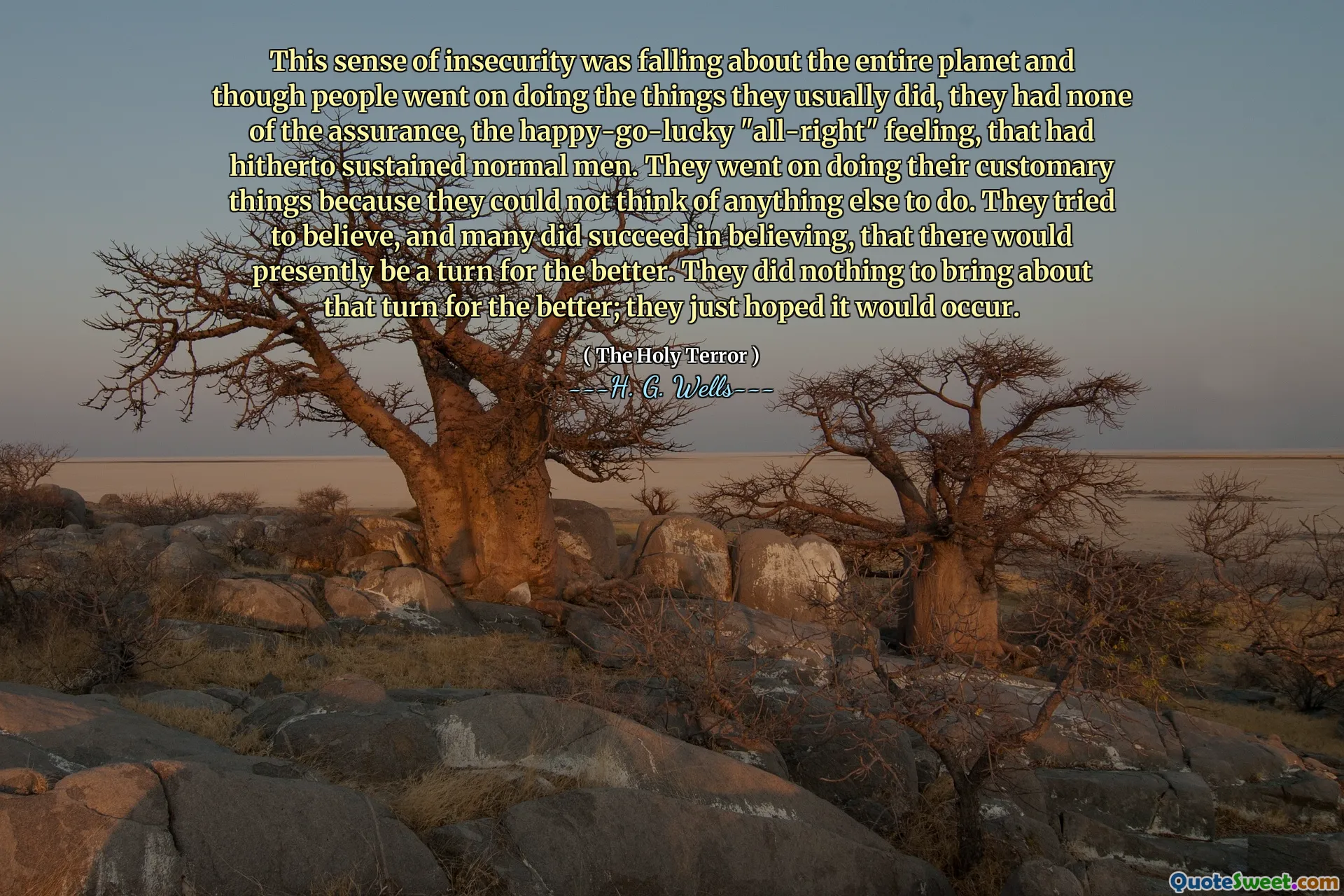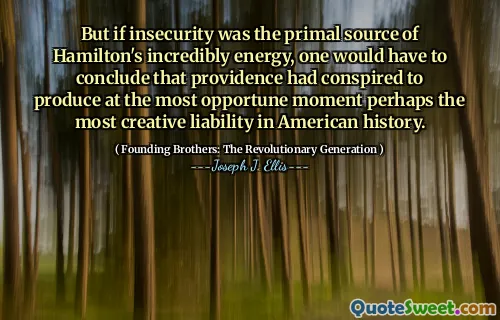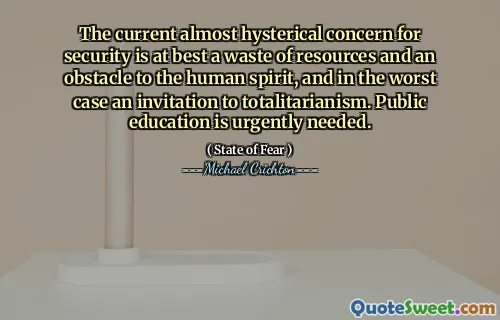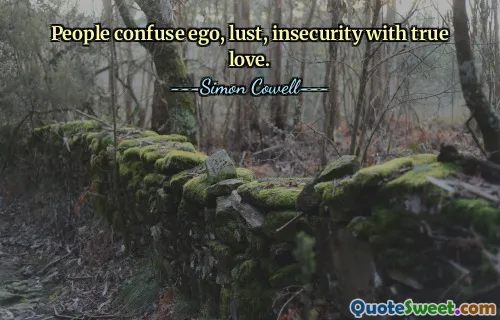
This sense of insecurity was falling about the entire planet and though people went on doing the things they usually did, they had none of the assurance, the happy-go-lucky "all-right" feeling, that had hitherto sustained normal men. They went on doing their customary things because they could not think of anything else to do. They tried to believe, and many did succeed in believing, that there would presently be a turn for the better. They did nothing to bring about that turn for the better; they just hoped it would occur.
Across the globe, a pervasive sense of insecurity gripped people, overshadowing their daily routines. Despite maintaining their usual activities, individuals lost the carefree assurance that once characterized their lives. They continued with customary behavior not out of conviction but due to a lack of alternatives. This sense of aimlessness permeated their actions, fueled by an underlying anxiety about the future.
In the midst of this unease, many clung to the hope that circumstances would improve on their own. While some managed to convince themselves that a positive change was imminent, their hope was not accompanied by any real effort to facilitate that change. The reliance on hope alone, without proactive measures, illustrated a collective resignation to the status quo, revealing a deep-seated apprehension about their ability to effect improvement in their lives.










